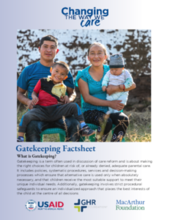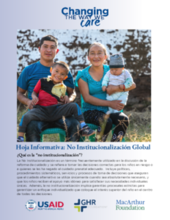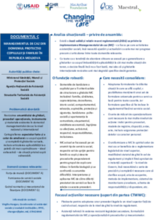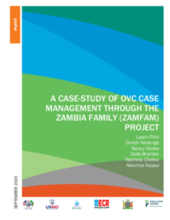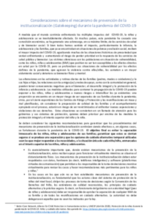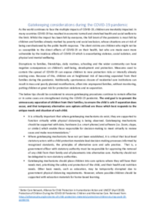Displaying 1 - 10 of 191
This webinar was organized by India Alternative Care Network (IACN) in association with Miracle Foundation India, on April 28, 2023, with the objective to understand gatekeeping, it's components, tools, mechanisms, stakeholders and their role in gatekeeping and learning some promising practices at the primary and secondary levels of gatekeeping.
This Gatekeeping Factsheet, targeting those engaged in care decisions, including government actors/institutions, civil society organizations, practitioners and parents/caregivers explains the objectives of gatekeeping and essential components of a gatekeeping system, core principles of effective gatekeeping and signs that a gatekeeping system is operating well or needs to be strengthened.
Gatekeeping es el término que describe el mecanismo, proceso o pasos específicos involucrados en la toma de decisiones relacionadas con el cuidado de las niñas, niños y adolescentes (NNA) donde exista la posibilidad de riesgo de separación familiar, o pérdida del cuidado parental.
A fost efectuată atât analiza ghidurilor naționale cât și internaționale, a proceselor standard de operare, a instrumentelor și a materialelor pentru Managementul de caz (MC) pentru a identifica punctele forte și lacunele.
This study uses longitudinal administrative data to assess the decision to transfer a family to ongoing child welfare services within twelve months of an initial investigation.
This research focused on a U.S. statewide program that uses team decision-making meetings to identify needs and plan services for youth who are at risk for instability while in foster care.
This case study was employed to understand actors, perceptions and document best practices by the ZAMFAM program, a project aimed at improving the care and resilience of vulnerable populations while supporting HIV epidemic control in Zambia.
this study examines the relationship between needs, matched services, and child protective services (CPS) re-report.
Este documento presenta recomendaciones para garantizar que los procedimientos del mecanismo de prevención de la institucionalización continúen siendo efectivos o, en algunos casos, se fortalezcan durante la pandemia de la COVID-19.
The tips in this guidance should be considered to ensure gatekeeping procedures continue to remain effective or in some cases are strengthened during the COVID-19 pandemic.

